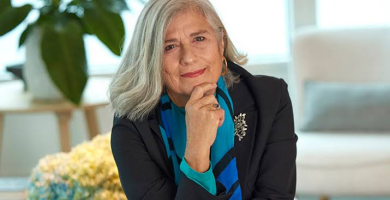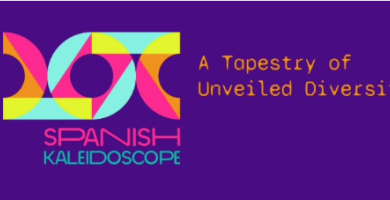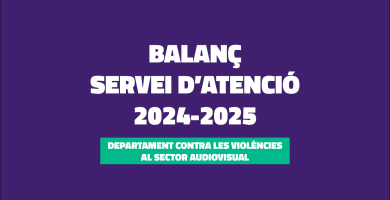
MATHIEU BÉJOT: "don’t forget to be passionate about your project – it’s certainly the best way to convince decision makers that is important and that you are the right person to carry it out!"
This month we interview Mathieu Béjot, Director of Strategy and Development of Sunny Side of the Doc. We talked with him about this event dedicated to documentaries. The first Sunny Side of the Doc was held in 1990. Next year will therefore be the 35th edition of the documentary market.

Did your philosophy change over the years?
Our basic philosophy has hardly changed. Sunny Side of the Doc was initially set up with a few simple guiding principles: documentary is a genre that can travel, ambitious documentaries cannot generally be funded on any domestic market and need to be internationally coproduced. In order to do that, a platform dedicated to finding artistic and financial partners is needed. The documentary ecosystem has gone through dramatic changes in the last 35 years, and Sunny Side of the Doc has had to adapt to and anticipate those changes. But international coproduction has remained the DNA of the event, even if it has increasingly included the distribution of completed docs.
Also, over the years, you have introduced other events and activities apart from your market. Why did you decide to extend the activities for the rest of the year? And what are the main activities you develop?
We know that developing and producing films as well as finding international partners don’t happen overnight during a four-day event but require regular meetings, exchanges, pitches and feedbacks. Besides, not everyone is in a position to travel to La Rochelle every year. That’s why we decided to hold various satellite events in different countries and regions, such as the Latin and Asian Side of the Doc for instance. With Covid-19 and the lack of in-person meetings, we thought it was important to give new projects a chance by bringing together project holders and decision makers during focused online pitching sessions. That’s how our Global Pitch was born in 2021. We were originally approached by several broadcasters in search of projects, which convinced us that we could contribute to the industry by focusing on broad, topical and relevant issues, such as Women’s Voices, the Climate Change or the UN 17 Sustainable Development Goals.
You have opened your call for your pitch sessions in February. In your opinion, what makes a good pitch? What is the best way to present a new project?
At the risk of stating the obvious, a good pitch should be about a compelling story, not just an issue however important it may be. Storyline, characters, and treatment are essential elements to be introduced in a pitch. A good pitch should also highlight the uniqueness of the project, its exclusive access to a story, and any other elements that will make it stand out among other similar projects. A good pitch should also convince decision makers that the project holder has the ability to deliver the best film within a budget which is both realistic and consistent. And don’t forget to be passionate about your project – it’s certainly the best way to convince decision makers that your project is important and that you are the right person to carry it out!
Do you have a story about a pitched project that really got your attention?
It’s hard to pick one story out of the many excellent pitches we’ve had at Sunny Side, but I would give a special mention to This is a Quiet Love, an intimate feature documentary where four deaf couples share the stories of how they met and fell in love. The project won the Best Global Issues Pitch Award at Sunny Side 2023. The pitch couldn’t have been more simple, with the director and producer pitching their project against a blue background in a mix of sign language and spoken language. The pitch was awarded because of the chemistry between the producer and director to develop a warm, inclusive, and positive project which also has a bigger picture: historical, social, diversity.
What do you think distinguishes Sunny Side from other industry events?
Sunny Side is very unique as it is the only market dedicated to documentary. Most other industry events are associated with a festival or focus on one particular type of activities such as pitching or panels. Sunny Side also has a strong focus on specialist factual and is attended by key decision makers from broadcasters and platforms in particular.
What do you think are the most important problems producers of documentaries face today when trying to make a film?
Producers are facing a wide range of issues which are more pressing than ever before. It starts with finding relevant, compelling, and unique stories which will find a home and catch the attention of viewers among the glut of available content. In an increasing complex and fragmented media landscape, putting together financing is becoming more and more challenging. The whole sector is facing uncertainty with decreasing commercial and public revenues for traditional broadcasters and dramatic restructuring going on at most streamers as they focus on profitability. Add to this the challenges of how to embrace AI which will have a profound impact on development, writing, production, and post-production.
Do you think there is more interest in documentaries than 30 years ago?
Despite all the challenges, there is definitely a Golden Age of documentary. The genre has never been as popular as it is today. The streamers have certainly enabled new types of storytelling to emerge, and helped generate more interest with younger audiences. Whether it is in theatres, on YouTube, streamers or legacy broadcasters, documentaries are increasingly popular.
How was this 2023 edition of Sunny Side of the Doc?
We are extremely happy with the 2023 edition which attracted 2,100+ participants, in line with pre-pandemic days. While keeping our fundamentals, we have been trying to attract a greater diversity of profiles to Sunny Side to reflect and anticipate the changes in the industry: younger talents, different countries and regions, NGOs and Foundations for our Impact Campaign pitching session, museums etc. We were also pleased with the quality of the projects which were submitted and selected for the pitching sessions, with the particularly dense offer of panels, channel lineups and workshops and with the revamped innovation strand which focused on non-linear documentaries, from XR and immersive content to podcasts.
Next year Sunny Side of the Doc will join forces with IMZ International Music + Media Centre, the global network for the performing arts film industry to offer two pitching opportunities at Avant Première 2024 in Berlin. It's the fifth time you do that. How was this initiative born?
Sunny Side has an Arts & Culture pitching session, which is very important to us although it is a bit of a niche, especially as dedicated slots are becoming more scarce. We needed to ensure that we could continue to access the right decision makers, the best projects, and the relevant expertise on this field. It made perfect sense to partner with a like-minded organization sur as IMZ. Avant-Premiere and Sunny Side have some members in common in their respective communities, but we are also very complementary with different participants. We felt that we could each benefit from collaborating for the better good of Arts and Culture projects which do require special attention and support. Every year, our partnership gets more meaningful as we collaborate on the Avant-Premiere pitching sessions, on awards at each other’s event, on panels and on an IMZ stand at Sunny Side.









